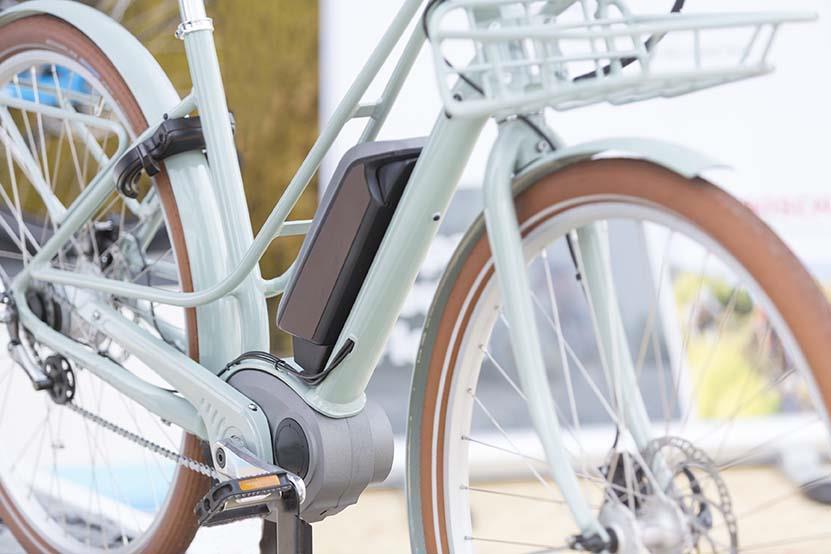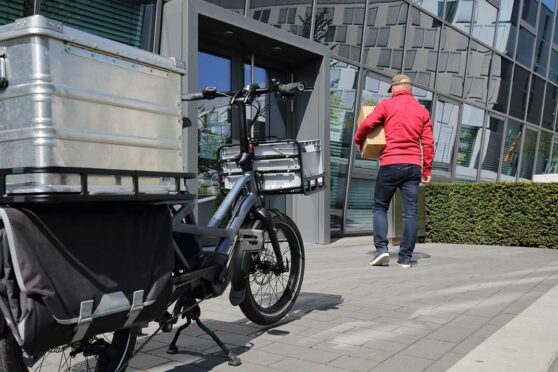It’s now possible to have almost anything delivered to our doorstep. This increasing demand results in more delivery vehicles on the road, worsening traffic congestion and, depending on the type of vehicle, negatively impacting air quality and noise pollution.
Bicycles, and in particular cargo and ecargo bikes, are a great alternative to petrol and diesel transportation, and one that is increasingly being used by both individuals and commercial organisations. A cargo bike is any bike that has been specifically designed to carry a load, and an ecargo bike is simply a cargo bike with the addition of an electric motor.
Most importantly, ecargo bikes have zero tail pipe emissions. This means when conventional petrol and diesel vehicles are replaced with bicycles, cargo and ecargo bikes, there is no negative contribution to air pollution.
Lower running costs – and good for avoiding traffic jams too
When looking at cost, ecargo bikes can also make good financial sense. There is a significantly lower upfront cost compared to cars and vans, and as electricity is cheaper to buy than petrol and diesel, ecargo bikes have far lower running costs too. Insurance, maintenance and repair costs also all come up significantly cheaper.
Cargo and ecargo bikes also take up less road-space than conventional vans, which eases congestion while increasing their efficiency. They can take shorter, faster routes by using cycle and bus lanes, being wheeled through pedestrianised areas, or moving through standstill traffic.

Additionally, their small size means that they can be parked closer to destinations so deliveries can be made more quickly.
Finally, the use of cargo and ecargo bikes can contribute to a healthier, happier workforce. The physical activity of using a bike is beneficial for rider health, with some companies even reporting that their ecargo bikes riders take less sick leave than other drivers.
Types of ecargo bikes
To get the most out of them, it is important to find the right ecargo bike model for your organisation.
The most suitable model for you will depend on several factors, including the expected use of the bike, as well as where you will be using the bike.
Typically, there are three main types of ecargo bikes.
These are:
- Two-wheel bicycles
- Three-wheel tricycles
- Four-wheel quadricycles
In addition to these, you can purchase electrically assisted trailers which can be attached to an ecargo bike, push bike or even carried by hand; as well as bespoke ecargo bikes that can be custom built for specific purposes.
Find out how ecargo bikes are delivering for a Fort William bakery.
Interest-free loans funded by Transport Scotland
Interest-free loans of up to £30,000 are available from Energy Saving Trust, funded by Transport Scotland (an agency of the Scottish Government).
The ebike business loan aims to support organisations that want to reduce the carbon impact of their transport and travel arrangements with new and more efficient alternatives.
The loan covers:
- new pedal-assisted electric bikes, up to £3,000 per bike
- new cargo bikes, up to £6,000 per bike
- new adapted cycles
If your organisation is replacing a car or van with a cargo or ecargo bike, there is no maximum limit per bike, within the maximum loan amount of £30,000.
Supporting documentation for this loan can be acquired from one of the Energy Saving Trust’s sustainable transport coordinators, and will need to be uploaded alongside any other documentation required to support the application.
Get in touch
Visit the Energy Saving Trust website and complete the online form quoting EBAR to get the free ecargo bike adoption report and other information.
